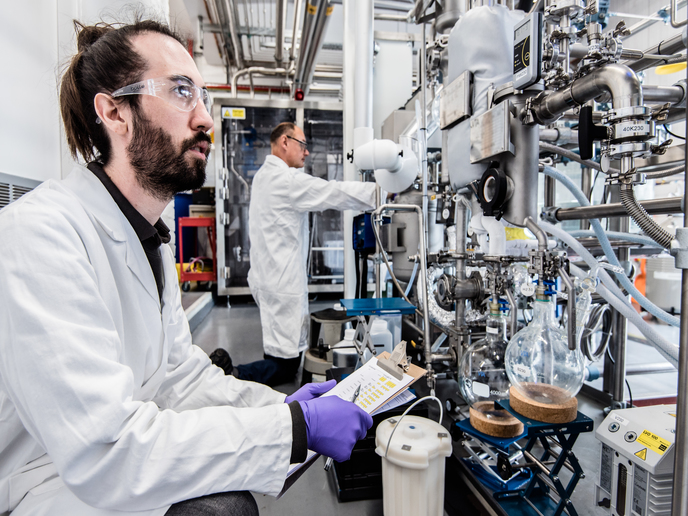Cheaper and more sustainable catalysts
The most commonly used industrial methods for producing enantiopure pharmaceutical intermediates are often inefficient and expensive. Other methods require expensive catalysts based on noble metals (e.g. palladium, platinum, rhodium) and are only useful for a few reaction types. The EU-funded REDUCTO (Affordable solutions for asymmetric reductions of industrially relevant substrates) initiative set out to make asymmetric catalysis a more accessible method. The researchers worked to develop cheaper catalysts containing first-row base metals (e.g. iron (Fe)) and to produce important pharmaceutical intermediates. Researchers created a library of new catalysts using Fe rather than more expensive metals. REDUCTO tested these catalysts in many hydrogenation reactions, and selected promising catalysts for further study. The researchers developed a new class of BINOL-derived Fe complexes and used them in the asymmetric hydrogenation of ketones. REDUCTO worked to optimise the new Fe-based catalysts, and expand the asymmetric catalysis method to other classes of chemical compounds. The team also expanded asymmetric catalysis to the hydrogenation of substituted pyridines, a method not yet industrially exploited. They tested several different approaches and defined a method that gave very promising results. REDUCTO conducted tests in the hydrogenation of 2- and 3-substituted pyridinium salts, which gave good results. The researchers then further investigated the reaction by clarifying the hydrogenation mechanism. The researchers developed an alternative approach to sustainability where they pursued more efficient use of noble metals by means of assisted tandem catalysis. They developed the first example of tandem olefin metathesis-asymmetric hydrogenation and further expanded the asymmetric catalysis method by transforming the Grubbs metathesis catalyst into an asymmetric hydrogenation catalyst. Project results will improve industrial production processes vital for the future health of European fine chemical and pharmaceutical industries. The invention of cheaper and more flexible catalytic methodologies should improve productivity. The large margin of improvement in productivity will allow the European industry to compete favourably on the global market with manufacturers outside of Europe.







